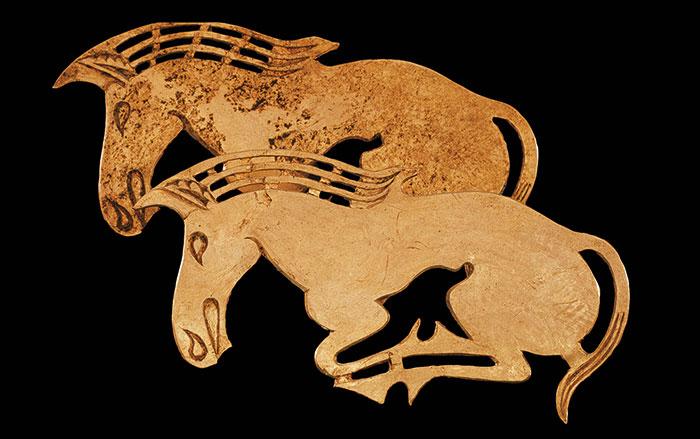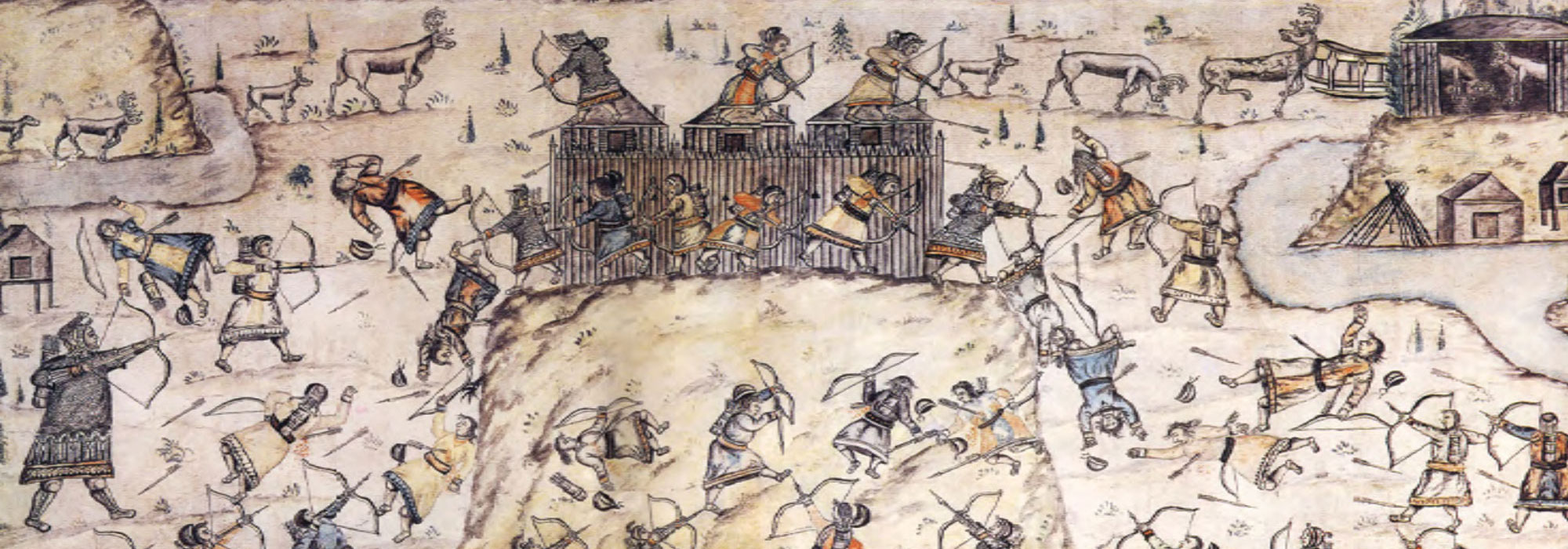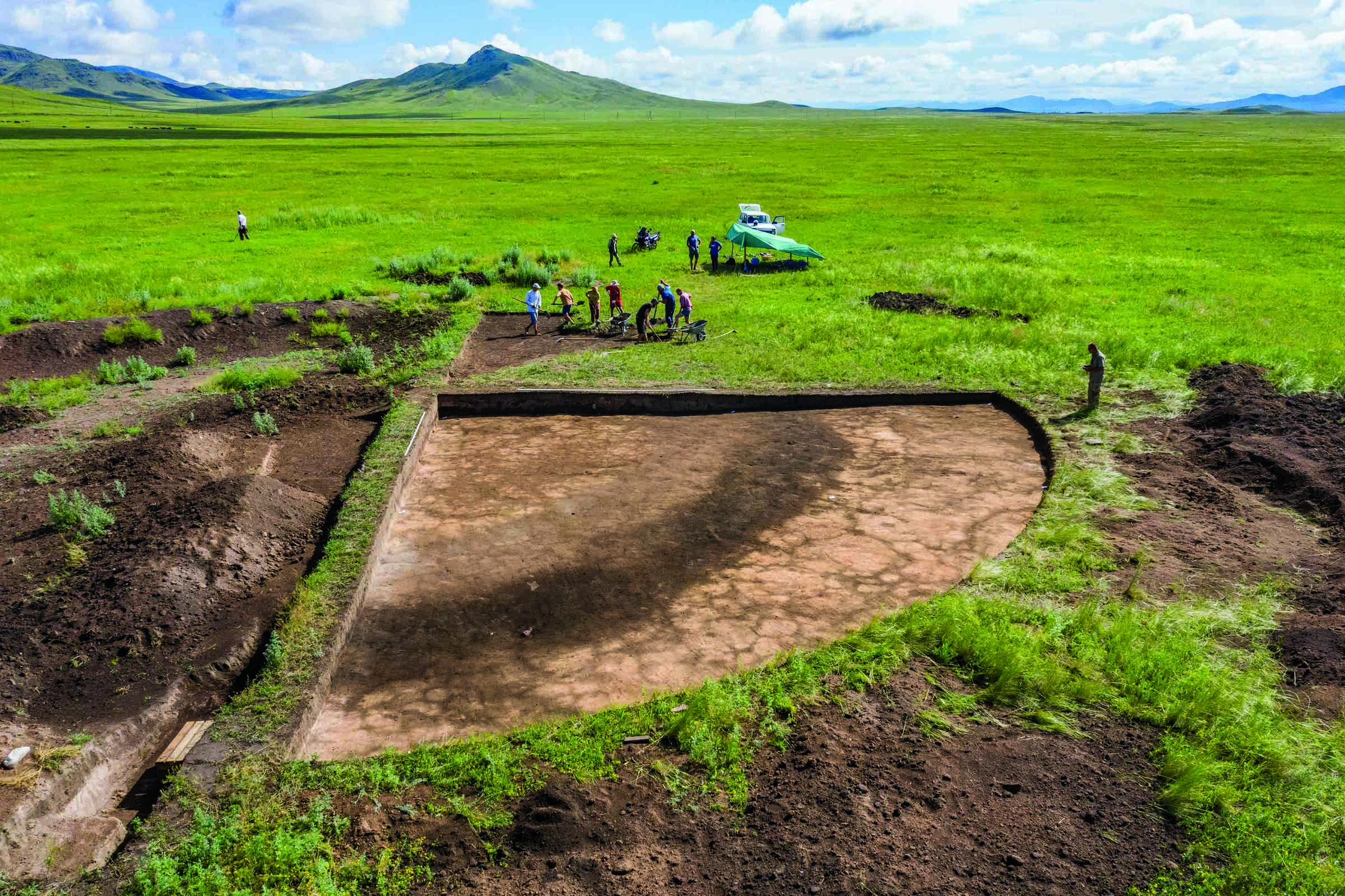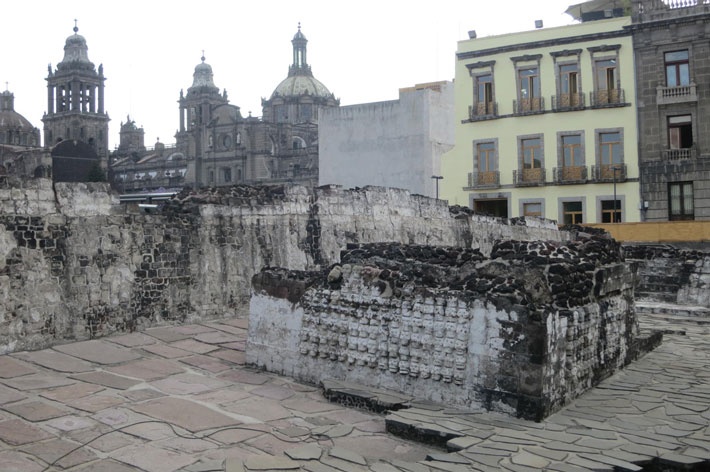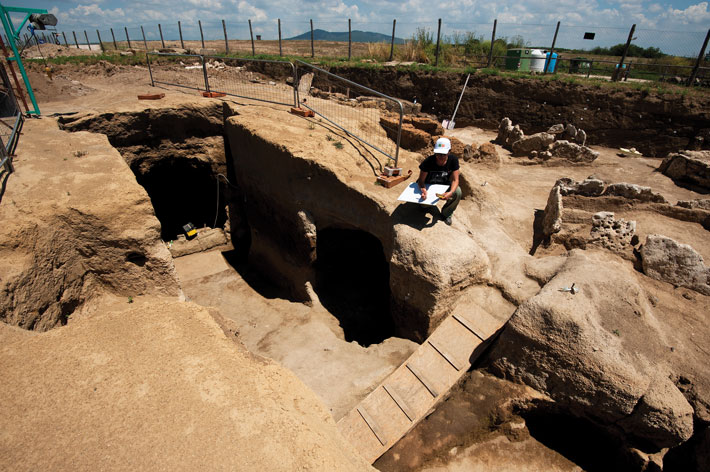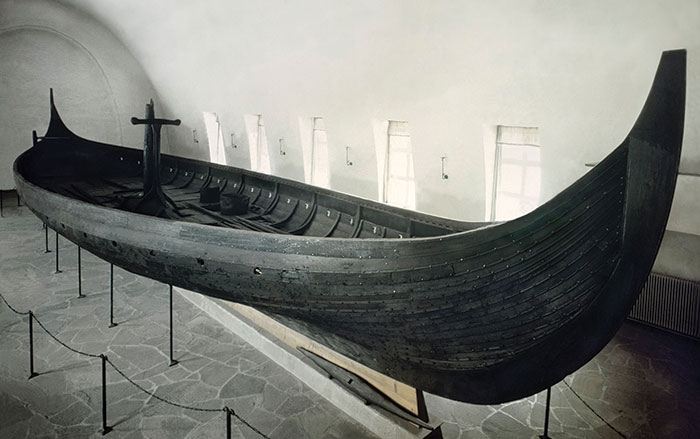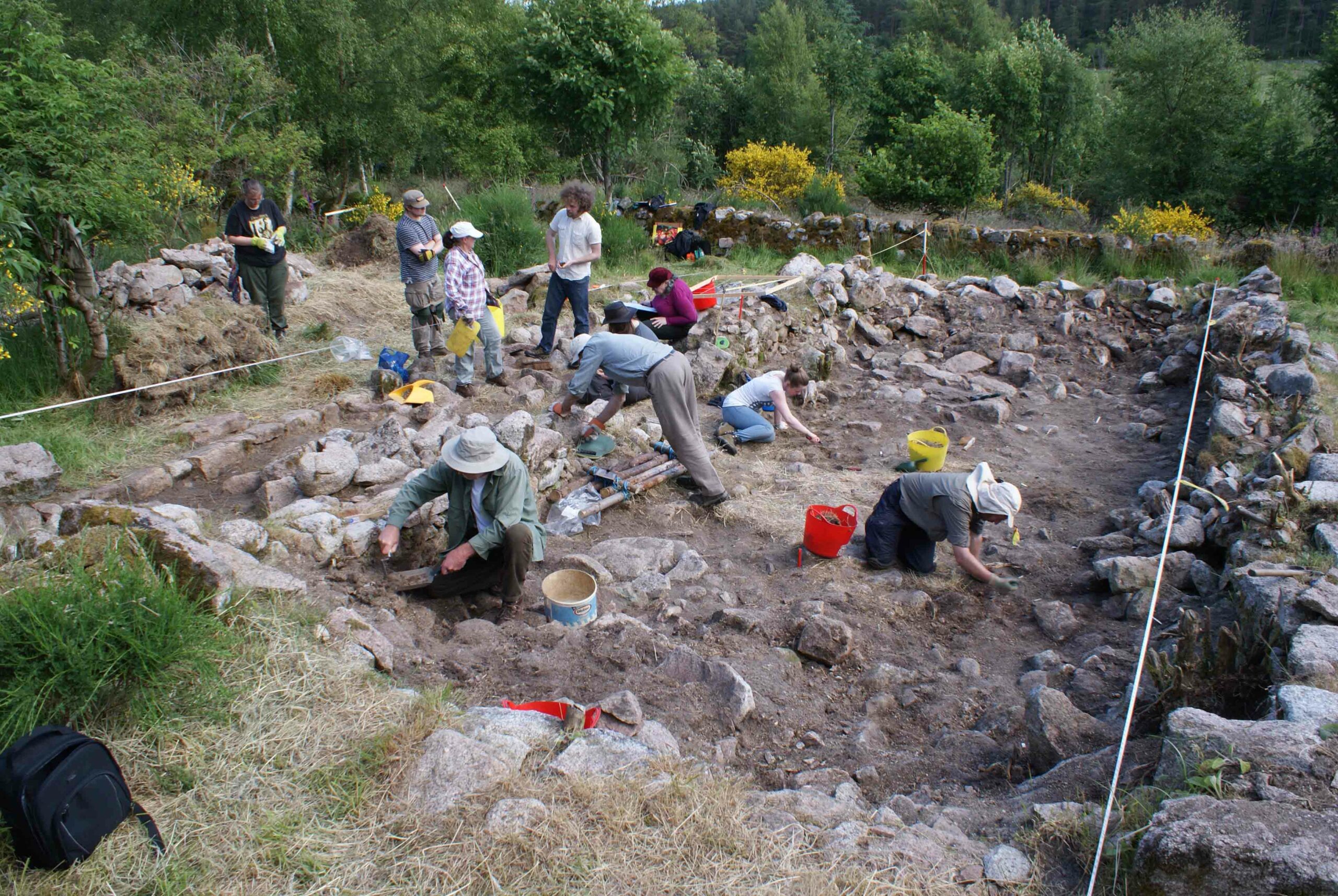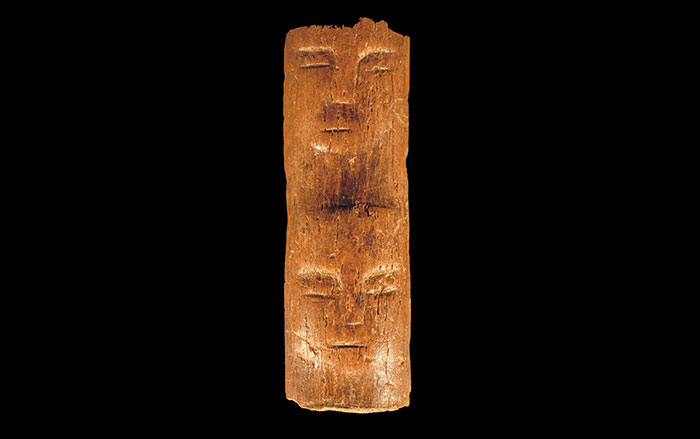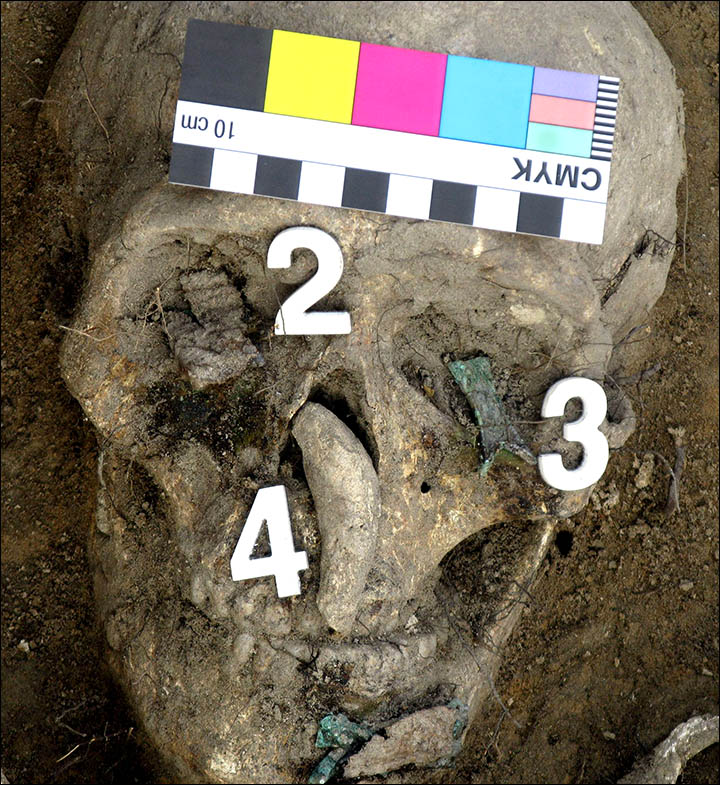
OMSK, RUSSIA—The grave of an eleventh-century warrior of the Ust-Ishim culture who had been killed in battle has been unearthed in southwestern Siberia. Nicknamed “Bogatyr,” or “Great Warrior,” the man’s severed left arm had been placed near his body, and a death mask made of fabric had been put on his face. Caskets made of birch bark covered his eyes and mouth. Inside the caskets were metal fish figurines with their heads broken off. “It is interesting that the fish figures were cast as one, and then broken in two," archaeologist Mikhail Korusenko of the Omsk branch of the Institute of Archaeology and Ethnography of the Siberian Branch of the Russian Academy of Sciences told The Siberian Times. "It was an intentional action, definitely. Perhaps, it had some religious importance. Then, next to his nose was the fang of a big predator, a bear, this beast being traditionally associated with strength, power and warriors,” A mirror made of a metal plate was found on the warrior’s chest, and 25 arrowheads made of metal and bone were found in the grave. “Some of them were clearly of military purpose. Behind his skull we found a ringed bridle—a sign that the warrior was an accomplished horseman,” Korusenko said. To read about the excavation of medieval fortifications in Siberia, see "Letter from Siberia: Fortress of Solitude."



